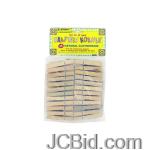
| Updated Blogs |
|
Computer Support Blog
Essensial Software for Web Based Support
HP Server and Desktop
HP ILO - Remote Tech-Support Software
More .....
|
 RSS Feed | Login
RSS Feed | Login adameric
it contain info regarding health,travel,business,blog,diet,technology etc......
Rotator Cuff Injury Treatment
By adam eric at 2010-12-20 01:24:06
These exercises can be part of a rehabilitation program following injury, like a torn or a dislocated cuff, as a physical therapy protocol after arthroscopy, but also as a strengthening and healing program to slash recovery times for all major shoulder disorders afflicting thousands of people worldwide every day. Conditions like a Frozen Shoulder (Adhesive Capsulitis), Shoulder Impingement.
If it is determined by your doctor that surgery is not necessary, be sure to review all treatments he feels will be best to relieve pain and gain strength without causing further damage. Whatever the treatment, it is strongly recommended you rest the shoulder and stop any activity that causes you pain. You may also take anti-inflammatory drugs such as Advil or Aleve to reduce swelling and relieve pain.
torn cuff difficulties, which have persisted over a period of time, tend to be treated outside of surgery, with relaxation, pain killers, ice massage and a cut down activity schedule, or at least a range of more moderate arm motions. If the symptoms don't respond to these measures, additional therapy involving MRI scans are needed to look for any foremost tears in the cuff. X-rays will not show a torn cuff, but they will illustrate any outline bony abnormalities that might suggest further cuff disease.
The main reasons for cuff problems are injuries on one hand, or spontaneous disorders on the other. Tears, Dislocations and Post Traumatic Surgery belong to the first category, while Impingement Syndrome, Bursitis, Tendonitis and Frozen Shoulder belong to the latter. The reasons why such disorders arise are as diverse as accidents, over use of the shoulder joint with repetitive motions, age, or even diabetes and being over weight.
A rotator cuff tear can also develop within the tendons over time due to the tendons wearing thin. This is called tendinitis, which is an inflammation of the muscles. Rotator cuff tendonitis usually happens to those over 40 years of age and who repeatedly do overhead activities. Calcium deposits can also cause rotator cuff tendinitis. Calcium may deposit in the tendons due to decreased oxygen and poor blood supply. Once torn, a rotator cuff has difficulty healing due to its very poor blood supply.
This could be totally avoided with the implementation of specific rotator cuff strengthening exercises performed with outward and inward movements focused at the 4 cuff muscles only, not the Deltoid or the Trapezius. These rotational movements stimulate the cuff muscles and tendons, aiding correct posture and building a strong foundation over which the Deltoid and Trapezius can exert power.
The success of a rehabilitative program also varies depending on individual responsiveness and/or severity of the disorder or injury. Tendonitis, Bursitis and Shoulder Impingement are conditions that can last many months if left resolving naturally, but few key exercises performed daily can slash recovery times to a fraction, eliminating the need for anti inflammatory medication or cortisone injections.
It is quite common for sport people to have a rotator cuff not up to the job of the visible shoulder muscles, like the deltoid. This is unfortunate, because the cuff provides foundation for shoulder stability and assists the other muscles in all movements. When the shoulder joint becomes over stressed from repetitive or strenuous motions, then a tear or an inflammation like Tendonitis or other can occur.
Anti inflammatories are always prescribed to soothe inflammation and relieve pain in most disorders and injuries such as a tear, a Frozen Shoulder, a Bursitis, a Tendonitis, an Impingement or post surgery. They can be useful as a quick and temporary solution to a problem, but they do not cure the disorder or injury at root level, come with side effects and do not speed up recovery times. On the contrary, they can lead to a self fueling circle of dependency.
A physical therapy program of specific rotational exercises is the best medicine to recover from an injury. These movements are quite different from common shoulder exercises and should be performed without resistance or with a very light one. Sometimes, following surgery or a severe tear, such rotational exercises should be performed not just without resistance.
Other treatments include cortisone injections for more sever cases and natural remedies like ice packs for Tendonitis, Bursitis and Impingement, because cold is a universal soother for swelling and inflammations. For a Frozen Shoulder, ultrasounds and hot packs can be recommended so as to soften up the adhesions, the root cause of the disorder.
Natural resolving times for stubborn Bursitis, Tendonitis or Impingement can go on for months, with the sufferer relying on anti inflammatory medication, cortisone injections or ice packs to sooth the pain and reduce inflammation. However, while these remedies can be useful, they should only be considered as ancillary treatments of a main recovery strategy based on a physical therapy program.
A rotator cuff injury treatment that includes specific rotation exercises will slash recovery times to a fraction and deal with the pain naturally, allowing former sufferers to go back to their daily lives and activities as ever before, only better equipped to prevent tears or disorders from happening again. These exercises consist of few key movements to be performed on a daily basis at home, not just at the surgery, under the doctor's directions.
For tears and dislocations, the therapist usually prescribes a period of rest with anti inflammatories to ease the pain and give time to the shoulder to recover enough to undergo a rotator cuff injury rehabilitation program. Physical therapy is the best and most effective solution to reduce recovery times for a torn or dislocated shoulder cuff, strengthening it, reducing inflammation and setting up a solid foundation for all shoulder movements.
Read About money news and also read about unsecured personal loan and payday advance loan
And Also Read About finance guide and financial calculators
Permalink | Comments (0)
Comments
To add a comment please login by clicking here
JC Store | JasmineCorp
|
JCBid
|Software
Development |
Domain
Registration | Hosting
| Web
Designing | Buy
Books |
Advertise
with JCSearch |
Whois
|
IP
Locator |
Add
Search |
Shopping
| Store
|
Free Blogs |
Free
GuestBook | Free
E-Cards |
Free
Games |
Free
Tutorials |
Set
as Home | Add
to Favorite
| Suggest
a Site |
Directory
Our Portfolio
| Terms of service
| Free quote
| Tell a Friend
| Special Offer
| Job Opportunities
| games
| Usenet Groups




